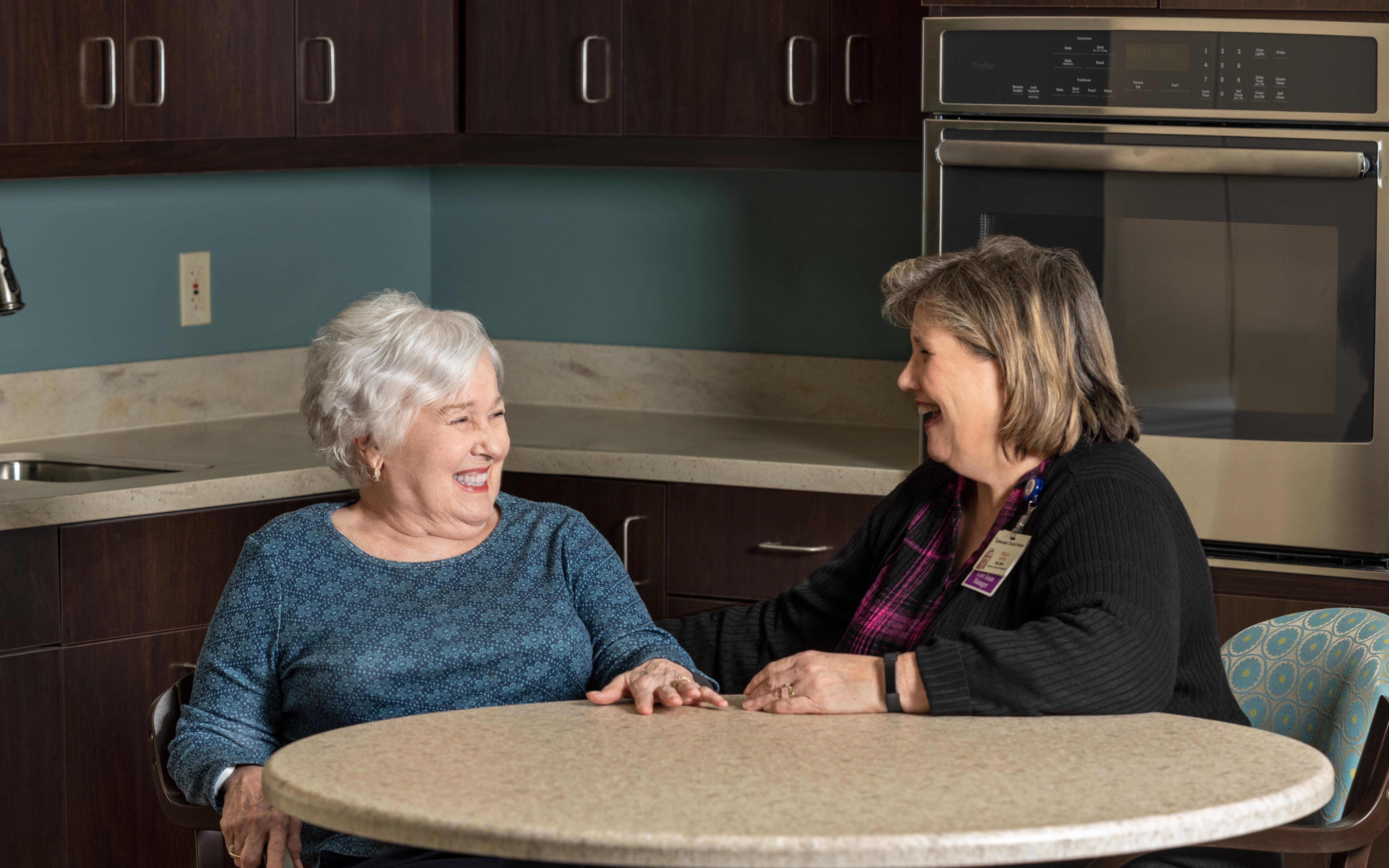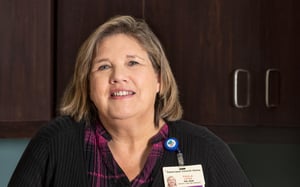
When considering memory care for your loved one with Alzheimer’s or dementia, it’s normal to have a lot of questions. Fortunately, our staff is always available to address your queries and go over your options. Below, our care team manager, Paula Cates, answers several of the questions she regularly receives from caregivers and families.
Q: How can I tell if my loved one needs memory support? What are the warning signs?
PAULA: This varies depending on the amount of support one has at home. A person living with their spouse or their children can stay at home longer than those who are living alone. If things are no longer working at home with support available, then Memory Support is needed. 
One always needs to keep safety in mind. Families need to ask themselves if their loved one would know how to respond to an emergency when living alone. If there was a fire, would they get out of the house? If a stranger came to the door, would they let them in? If a scam artist called or came to the door, would they be vulnerable? If living alone, are they eating regular meals? Are they safe using the stove, or should it be turned off? Would they know if the food was spoiled, or would they consume it anyway? Are they safe with their medication management?
Q: What level of support does the Memory Care of Excellence offer? Do you accommodate people at all levels of dementia?
PAULA: Memory Care is licensed as personal care. This license limits the amount of care that we can provide. Our residents must be able to get from point A to point B either walking or in a wheelchair with minimal staff assistance. They must be able to follow directions to participate in their care, and they must be able to feed themselves.
If we see a decline in one of our residents, we attempt to find a cause for the decline, such as an infection. We will get the physician involved, and we will notify therapy to aid us is turning the decline around. If the decline seems to be permanent, we will then work with the family to transfer the resident to one of our nursing neighborhoods.
Q: What programs does the community offer?
PAULA: We offer physical, occupational, and speech therapy. Our speech therapists often work with residents on cognitive training in an attempt to enhance their cognitive ability. Physical therapy assists our residents with mobility, strengthening, and stamina. Our occupational therapist works with our residents to maximize their self-care abilities.
We also have daily exercise opportunities. Our exercise programs take many forms including yoga, balloon volleyball, and BingocizeⓇ. We have several physicians that come to our community to decrease the need to go out for appointments. We have an eye doctor, dentist, and podiatrist who regularly visit, too.
Q: How do residents stay active and engaged?
PAULA: We have a full activity calendar with at least three scheduled activities daily. We have activities both in our neighborhood and throughout the campus. Our residents are accompanied by staff when off of the neighborhood.
We have many musical activities from pianists to live bands. We have craft projects and cooking activities. There are opportunities to assist with caring for our flower and vegetable gardens in our courtyards. There are monthly outings outside the building. These often include visits to restaurants, but we’ve also gone to baseball games and on fishing trips.
The residents have the opportunity to have input on the activities that are planned. Our residents also spend time just socializing with each other. We have living rooms throughout Memory Care. These are perfect gathering places.
Q: When is the best time to get on the waitlist?
PAULA: The best time to get on the waiting list is before there is an emergency. Often the illness of a caregiver prompts families to seek care outside of the home. Decisions then are often rushed.
Taking time to visit various homes before an actual need and knowing what types of services are available and being comfortable with one’s decision is the best way to proceed. Then, an application could be filled out, and one could be placed on the waitlist. Then when one’s situation changes, there is no need to make rushed decisions.
Q: Who assesses residents’ health and cognitive functioning? Also, how do you communicate with families about a resident’s well-being?
PAULA: There are nurses assigned to Memory Care daily for 12 hours daily. They provide ongoing assessments of our residents. If any needs arise while a nurse is not present, the staff can call the house supervisor to come and assess the situation.
The residents are cared for by the same staff members day after day. Their caregivers know them very well and are very attuned to subtle changes in their health. They then report these changes to the nurse when identified. Our physicians and nurse practitioners closely monitor our residents. They are in the building multiple days per week and available by phone 24/7. Our social workers do regular cognitive assessments on our residents to monitor cognitive ability.
Q: What are the living arrangements like?
PAULA: The homelike setting of our Memory Care neighborhoods is a source of pride. The layout does not include the traditional long halls of an institutional setting but small groups of rooms that are called houses. We encourage residents to bring their personal belongings to personalize their rooms.
We have four dining rooms in Memory Care, so there are never more than 13 residents dining together. There are living rooms with fireplaces in each house. Residents have access to large enclosed courtyards during good weather. The courtyard doors are open during daylight hours, so residents and come and go at their leisure.
Q: What do you like most about working at ECH’s Memory Care Center of Excellence?
PAULA: I am proud of the care that we provide. We have excellent dedicated staff members, many of whom have more than 10 years of service. I enjoy getting to know our residents and their likes and dislikes. This information is used to help calm them when they are anxious, help them get to know their peers and feel at home when they are getting used to their new surroundings. I enjoy working with family members to aid them in better understanding their loved one’s disease and giving them tips to help make their visits better.
Have additional questions about memory care? Call us or schedule a tour to learn more.












